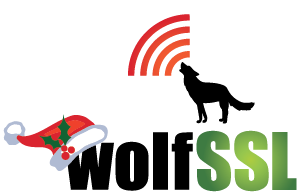wolfMQTT was updated to support the draft MQTT v5.0 version of the specification in 2018. The specification was finalized in 2019, and wolfSSL has been a proponent of the new version ever since!
- Enhanced Session Management:
- MQTT v5.0 introduces improved session management, allowing clients to resume sessions seamlessly. This feature ensures continuity and reliability, especially in scenarios where connections may be unstable or intermittent.
- Extended Message Properties:
- Version 5.0 introduces extended message properties. These properties offer richer metadata for messages, enabling more sophisticated message routing, filtering, and processing.
- Payload Format Indicators:
- With MQTT v5.0, publishers can indicate the format of the message payload, providing valuable information to subscribers. This feature enhances interoperability and simplifies message handling, especially in heterogeneous IoT environments.
- Message Expiry Interval:
- MQTT v5.0 allows publishers to specify a message expiry interval, ensuring that messages are delivered within a defined timeframe or discarded if they expire. This capability enhances message reliability and resource efficiency, particularly in constrained IoT networks.
- Request/Response Model:
- Version 5.0 introduces a request/response messaging pattern, enabling clients to make requests and receive responses over MQTT. This feature simplifies communication in IoT applications, facilitating interactions between devices and servers.
- Flow Control Enhancements:
- MQTT v5.0 provides improved flow control mechanisms, including the ability to specify maximum packet size and rate limits. These enhancements help prevent network congestion and improve overall system stability and performance.
- Topic Alias:
- In MQTT v5.0, topic aliasing allows clients to use shorter topic identifiers, reducing bandwidth usage and improving efficiency, especially in scenarios with long or complex topic names.
- Shared Subscriptions:
- Shared subscriptions enable multiple clients to share the processing of messages from a single subscription, distributing the workload efficiently across subscribers. This feature enhances scalability and resource utilization in MQTT v5.0 compared to v3.1.1.
- Support for Binary Data:
- MQTT v5.0 introduces native support for binary data transmission, eliminating the need for encoding and decoding payloads, which simplifies application development and improves performance.
- Authentication Enhancements:
- Version 5.0 offers enhanced authentication mechanisms, including support for more robust authentication methods such as OAuth 2.0. These enhancements bolster security and authentication capabilities, addressing evolving IoT security requirements.
wolfMQTT has excellent examples that demonstrate the capabilities of MQTT v5.0: Property handling callback for incoming messages
During connect:
LWT delay
Request problem info
Max packet size
During subscribe:
During publish:
Payload format indicator
Topic alias
As the MQTT specification continues to evolve, wolfSSL will stay on top of the latest improvements. Want to try out MQTT v5.0? You’ll need a broker that supports MQTT v5.0. You can find a list of brokers that we tested.
You can run the wolfMQTT client examples after building the code from here.
While you’re there, show us some love and give the wolfMQTT project a Star!
If you have questions about any of the above, please contact us at facts@wolfSSL.com or call us at +1 425 245 8247.
Download wolfSSL Now

